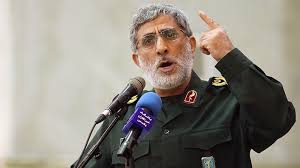After the fall of Assad and the sudden collapse of the Axis of Resistance in Syria and Lebanon, the Quds commander, Emaeil Qaani, was put on the dock. As known, previously, in October 2024, there had been talk of his arrest, news denied after a few days through his public appearance. Qaani was later seen at several public events in Tehran.
With the fall of Syria, the confrontations with his predecessor Qassem Soleimani, whose activity in Syria had been more succesful, emerged. Worth remembering that at the time Qaani was the deputy of Soleimani, in charge of the very delicate Afghan file and in particular of the relations with the Taliban. If Tehran was able to approach Taliban commanders today considered closer to Iran as Ibrahim Sadr and Abdul Qayum Zaqir, respectively today Deputy Minister of the Interior and Defense, among others, it is because of the network that he was able to build. Less prepared then on the other scenario, the Middle East, where Soleimani was the master.
However, at first, immediately after the fall of Assad, criticism of Qaani was limited especially in some small circles and his name did not appear among the “responsible” for the collapse. Tehran had lost the axis Al Bukamal Qaim which was the strategic outpost for the transfer of weapons to Lebanon and the Iranian, Afghan and Pakistani militias (Fatemyioun and Zaynabioun brigades) were forced to withdraw into Iraq by abandoning their positions (where possible, documents have been destroyed, but not all).
Today Iran International refers to an online article by Khabar on line which reports harsh criticism of Qaani coming from some groups as reported by former Khamenei’s Representative to the Quds Force, Ali Shirazi. He admits criticism would have emerged in some revolutionary circles. Significant passages he highlights from those discussions: “where is Haji Qassem?” And then: “Qaani is incapable”. It should be said that Shirazi was the representative of Khamenei when Soleimani was the Commander.
There were also rumours of a possible substitution of Qaani, which has not yet actually taken place. It should be said that in Syria, alongside the Quds forces, there were also ordinary Pasdaran units operating, which also suffered heavy losses.
